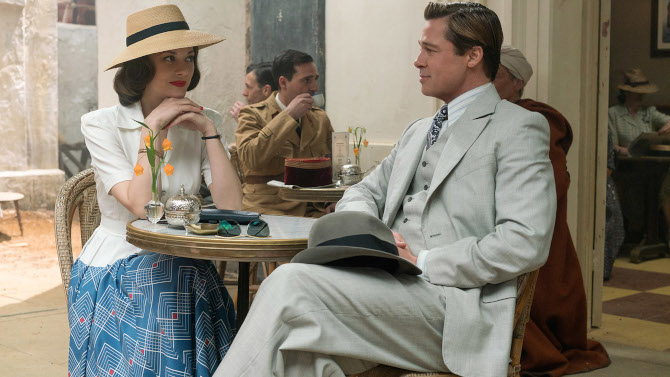
Déjà vu Dalliance
Channeling the mesmeric movies churned out by the studio system back in the 1930s and 40s, Allied (2016), directed by Robert Zemeckis, channels the likes of Morocco, Casablanca, Across the Pacific, Gilda, To Have and Have Not, and numerous others – attempting to find a spark from the classic themes of melodrama, romance, suspense and the epic nature of the annals of the cinematic past, with quite successful results. Set the year Casablanca and Across the Pacific were released – 1942, the story in fact starts in Morocco, with recently parachuted in Canadian spy Max Vatan (Brad Pitt) meeting up with another undercover agent, Marianne Beauséjour (Marion Cotillard), who will be pretending to be his wife.
-
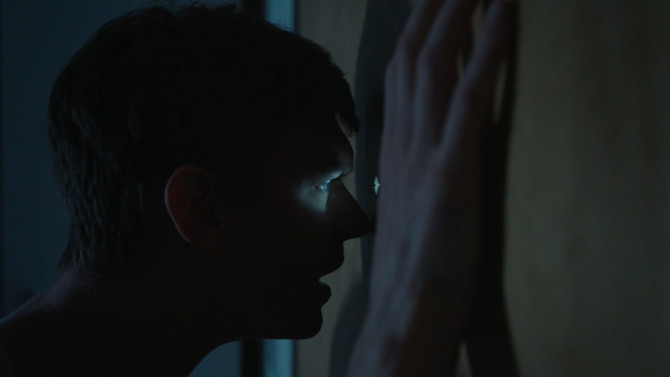
No Strings Attached
PeepholeOctober 5, 2020Having everything that is needed to build a spine tingling horror short, writer/director/cinematographer Jaron Henrie-McCrea’s just under four minute film, Peephole (2018), is one of the easiest and spookiest watches you’ll enjoy this Halloween season. Centred on a sole person, simply known as Man (Tim Lueke), and never hearing even a single word of dialogue, our character can be found asleep on his comfy couch in his small apartment. We’ve all been here before. . . late at night, our eyes becoming heavy, the television, whether exciting or boring (after all, not every infomercial has a knife that can cut through shoes), isn’t enough to keep us from dozing off.
-
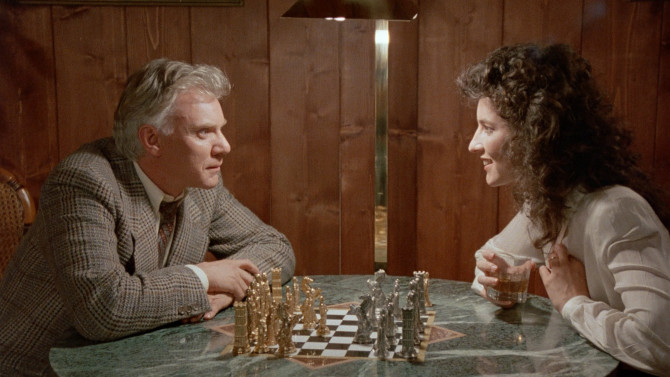
Game Point
The CallerSeptember 30, 2020With a title like The Caller (1987), one would perhaps have a preconceived notion that the Michael Sloan written (the co-creator of the television series The Equalizer), Arthur Allan Seidelman directed film would be something along the lines of the much more popular When a Stranger Calls (1979, or, if you prefer, the 2006 remake), yet, like its misleading title, nothing is what it seems. A cerebral horror tinged mystery thriller (that may just have an unexpected dose of sci-fi), Seidelman, who would seem to be aptly named, immerses the viewer with a quarter of an hour of what amounts to a chilling silent game of stalker cat versus female mouse. Taking us from an eerily quiet town to the even more isolated rural woods, our protagonist, simply known as The Girl – reminiscent of the basic names characters were given in the silent film era (Madolyn Smith Osborne), lives in a home that, in lesser hands, would likely resemble the cabin found in the Evil Dead franchise.
-
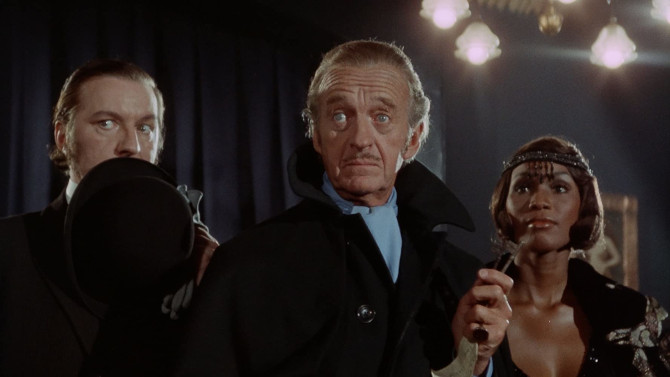
Fade to Black
Old DraculaSeptember 25, 2020If you are looking for something different in the world of vampires, odds are, no matter how outrageous your vampiric fantasy, it has already been done. Above and beyond the widely known Universal and Hammer features, we’ve seen whiny teen vampires – that’s Twilight, bloodsuckers in Alaska – 30 Days of Night, an African American creature of the night – Blacula, the dangers of a ravenous armpit that loves to feed on humans – Rabid, vampires in space – Lifeforce, mechanical bug bites that transform you into the undead – Cronos, cape wearers doing kung fu – Kung Fu from Beyond the Grave, and then we have today’s feature, 1974's Vampira (a.k.a. Old Dracula). . . its secondary title an attempted American cash-in after the release of Young Frankenstein.
-
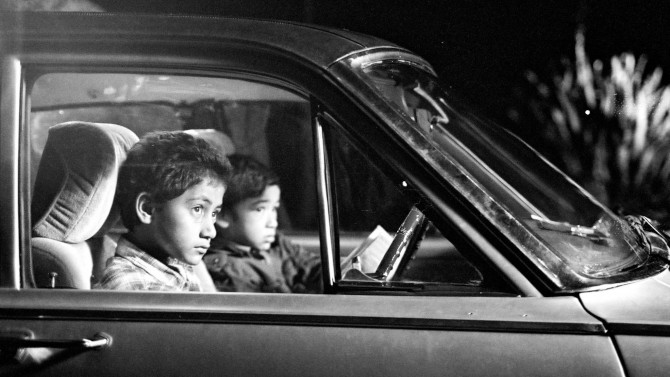
Kids in Cars
Two Cars, One NightSeptember 14, 2020There is no denying that Taika Waititi is one of the hottest directors in Hollywood right now. Just look back to his last four films. What We Do in the Shadows (2014) is a modern horror magic trick, an unexpected mockumentary that introduced many to his abstract and quirky sense of humour. Soon winning more fans with his Sundance darling Hunt for the Wilderpeople (2016), it was yet another one of his features to receive universal acclaim. Jumping into a completely different realm, he took one of the biggest risks seen in the Marvel cinematic universe, somehow transforming Thor from sullen, dark, depressing and somewhat wooden, into one of the funniest post modern adventures imaginable with Ragnarok (2017). Jockeying into yet another unexpected realm, he next became Oscar respected film maker with 2019's Jojo Rabbit (a comedy set in one of the least funny places imaginable – World War Two Germany). A man who can find laughs in even the most unexpected places, it is quite rare to find someone in this modern movie landscape that is willing to take such chances with his career – and it is utterly refreshing. Likely unknown to some, he has actually long been an Oscar-nominated film maker. . . earning a nod all the way back in 2004 for his live action short film, Two Cars, One Night.
-
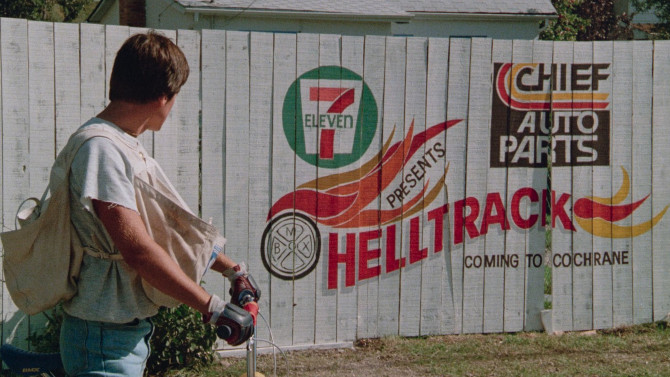
I Want To Ride My Bicycle…
RadJuly 31, 2020I’m still not exactly sure what I’m doing here, but here we go. . . 1986's Rad is one of the films that has the greatest discrepancies between critic and fan ratings – despised by the former, loved by the latter. An unknown to even the most fanatical of film fans, yet also a cult classic adored by its underground supporters, this motion picture, directed by stuntman nonpareil Hal Needham, is like a scientifically concocted adrenaline shot of cheese, kitsch, B movie badness, with a fantastical twist on the 80s. . . and, for some bizarre reason, I kind of liked it. Welcome to the town of Cochrane, a fictional place where the newspaper delivery boys are aided and cheered on by its local citizens (including the garbage men), where the cops love nothing more than playing a motorcycle versus bike version of hide and go seek against the kids in the local wood mill, where everyone’s favourite pastime is called ‘ass sliding’ – no, it’s not as dirty or fun as it sounds, where the dancing looks like a part of a Siegfried & Roy show (and that’s not to mention the sexualized bicycle tango), and each and every person (be it the Shriners on their little clown cars, or its aged population) seems to be absolutely enthralled by BMX biking.
-
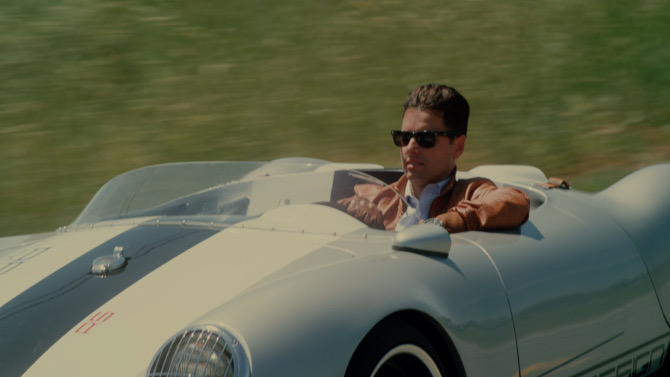
Leader of the Pack
Generation WolfJuly 18, 2020As I sat watching the special screening of the Canadian independent film Generation Wolf (the Ontario non-festival premiere held at the historic Port Theatre in Cornwall) surrounded by a massive audience – an image triggered in my mind. . . that of two individuals playing Russian roulette. Though this may seem nonsensical (especially once you read my synopsis), please allow me to elaborate. The movie had a certain inevitability, much like the deathly contest – after all, Russian roulette always ends with a bullet to the head. Yet, it was also imbued with many other features associated with the contest – chance, luck, suspense and a certain unpredictability. It is perhaps the biggest risk/reward game that can be played. As you can imagine, Generation Wolf produces its fair share of nerving thrills. Christian de la Cortina co-writes (along with Frank Baylis), produces, directs and stars in this Canadian picture that is still surfing the festival circuit. He plays Vincent Del Toro, a smart young man who has left his home in Michigan for sunny days in California, and is on the verge of putting his business on the map. Converting classic cars of yesteryear into modern, electric cars of the future, he has already made some sales. Waiting on the licensing bureau, he soon realizes that they are actually re-possessing his cars – as they won’t accept the electric motors he has used.
